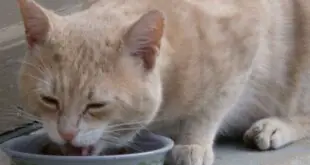This post may contain affiliate links. Please read our disclosure.
Explore the many home remedies for upper respiratory infections (URI) in cats. All pet owners (and lovers for that matter) always want to have their pets in perfect health.
Article Contents
What is a Cat (Feline) Upper Respiratory Infection?
Well, without much ado, upper respiratory infection in cats is an infection of the cat’s respiratory system and is the feline version of the human cold.
As such, the symptoms of the diseases in human beings are similar to those in cats.
Viruses or bacteria usually cause the infection. To address this infection one may use medications or home remedies. These are discussed later in this article.
Causes of Feline Upper Respiratory Infection
As stated earlier here the leading causes of feline URIs are viruses and bacteria. However, there are also other numerous microorganisms responsible for these infections.
Some of the leading causes of cat URIs are:
- A bacterium called chlamydophilia felis
- A virus called rhinotracheitis (aka feline herpesvirus1)
- A bacterium called Bordetella bronchiseptica
- A virus called calicivirus
- Bacteria called Mycoplasma spp
Is Upper Respiratory Infection Contagious?
Yes, it is highly contagious! It is generally a bacterial/viral infection, and that means there is a need to isolate affected pets from the rest. It should be noted that the contagions can move across species i.e from cats to dogs.
Symptoms of the Cat Upper Respiratory Infection in Cats
Before we dive into the home remedies for URIs, it is prudent to have an understanding of the symptoms such remedies will alleviate.
The commonly observed symptoms include:
- Coughs & hoarse voice
- Runny (watery) eyes
- Fever & lethargy
- Mouth sores
- Sneezing and nasal discharge
- Loss of appetite
- Drooling
- Rapid breathing
Upper Respiratory Infection in Cats Home Treatment
You have come from work and found that your cat or kitten is severely affected by a URI. What do you do? Well, there are several natural cat cold remedies that you can deploy.
The remedies will be symptom-specific (i.e., to address the specific manifesting symptoms in the cat).
The best remedies are
- Use a saline solution to wipe the cat’s eyes and nose: This remedy is used to address the watery eyes in cats. It has been observed that the discharge accumulates in the corners of the eyes. It is this residue that should be removed to ensure that the cat opens its eyes comfortably. Care should be taken not to harm the cat. It is advisable to restrain the cat properly before this procedure.
- Use steam to loosen nasal passages: This is used to address the coughing and hoarse voice due to difficulty in breathing. This approach works in cats just as it works in human beings. When the mucus is loosened, it can be wiped away, leaving the cat feeling comfortable. This is, therefore, one of the most effective cat stuffy nose home remedies.
- Encourage the cats to eat: While cats tend to lose their appetite while suffering from upper respiratory, it is advised that you encourage eating even if it is in small quantities of food. You don’t want your cat to lack energy when fighting the URI just because it doesn’t eat.
- Use lots of fluids: Fluids address issues with dehydration due to the moisture lost through a watery nose or eyes. This then ensures that the cat does not suffer from other complications such as kidney complications.
Cat Upper Respiratory Infection Medicine & Antibiotics for Kittens
On rare occasions when home remedies don’t work, or are not as efficient as expected veterinarians may recommend over-the-counter medicines.
Some of the most recommended medicines for kitten upper respiratory infections include eye ointments. In general, using human eye drugs on cats has serious side effects.
Some of the antibiotics that the veterinarian may recommend include:
- Clavamox (contains Clavulanic acid and Amoxicillin)
- Baytril (contains Enrofloxacin)
- Flagyl (contains metronidazole)
FAQs on Cat URI Home Remedies
Below are the commonly asked questions insofar as home treatment of the URI is concerned.
URI in Cats – How long does it last?
Well, for those wondering how long upper respiratory infections last in cats, the answer is simple: In general, it takes 2 to 3 weeks for the cat to get healed from the respiratory disease.
Cat upper respiratory infection death
Does URI lead to death in cats? Is it deadly to kittens? Well, the URI is generally NOT fatal to cats. In most cases, it resolves itself within 20 days. Fatality may only occur if other complications/infections arise.
Cat’s upper respiratory infection not responding to antibiotics
If your cat/kitten is not responding to prescribed antibiotics, it may have already developed some resistance.
The most prudent step to take is to take it back to the veterinarian. They should be able to advise further on what to do next.
Is cat upper respiratory infection contagious to dogs?
Yes, as stated earlier, an infected cat can spread upper respiratory infection to dogs. Therefore, it is advisable always to isolate the affected pet from the rest because the disease is highly contagious.
References on Cat URI Treatment
- PetsWeekly: Natural Ways to Treat your Cat’s Upper Respiratory Infection
- The Spruce Pets: Upper Respiratory Infections in Cats
READ MORE:
 Petnile Comprehensive Pet Care Guides
Petnile Comprehensive Pet Care Guides


